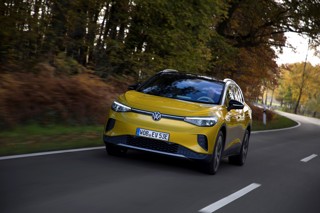Group Renault has launched Renault Energy Services with an aim to have an “active presence in the energy and smart grid sectors”.
Renault Energy Services will function much like a start-up and its objective is to invest in smart grid-related projects by forging privileged ties with the energy industry’s various stakeholders.
Renault Energy Services will focus chiefly on the development of smart charging, vehicle to grid interaction and second-life batteries.
Renault’s senior vice president of electric vehicles Gilles Normand (pictured) said: “The creation of Renault Energy Services marks an important step forward. Investing in smart grids is key to both reinforcing the lead we enjoy in the European electric vehicle market and accelerating the EV industry’s scale-up.”
Groupe Renault intends to make a contribution to the expansion of smart charging networks.
Its electric vehicles connected to smart grids will benefit from more economical, lower-carbon electricity.
In addition to permitting the development of smart charging, smart grids favour both interaction between electric vehicles and networks (vehicle to grid) and projects involving second-life batteries:
- Smart charging adjusts battery charging rates as a function of customers’ needs and the availability of electricity via the grid. Batteries are charged when supply exceeds demand, notably during renewable energy production peaks and when rates are at their cheapest.
- In vehicle to grid systems, electric vehicles provide electricity to the grid during peak hours. In this way, not only do they benefit from the advantages of smart charging but they also serve as a means to temporarily store energy.
- Even once their life as a power source for electric vehicles is over, EV batteries continue to be capable of storing a significant amount of energy. Renault is able to harness this energy, notably for the purposes of stationary energy storage.
- By giving batteries a second lease of life, Renault is today in a position where it can cover the full spectrum of energy storage needs, from individual homes to office buildings, factories, schools and apartment blocks, and even the charging of electric vehicles.


















Login to comment
Comments
No comments have been made yet.